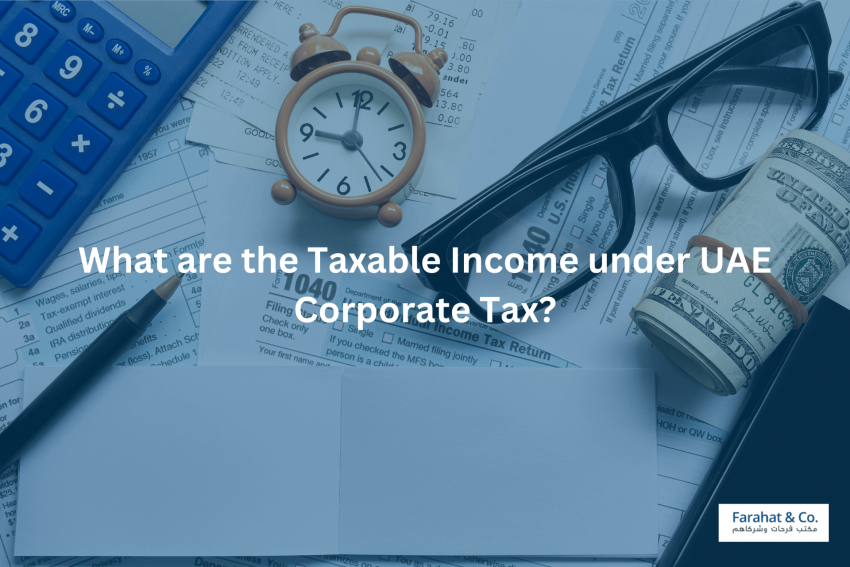No matter how many firms or commercial activities the taxable Person engages in during the tax period, a 0% rate will be applied to taxable Income that does not exceed Dh375,000. If your taxable Income for the applicable tax period is more than Dh375,000, you'll pay Tax at a rate of 9%. The taxable income level for company tax under the new law has been established by the UAE's Ministry of Finance (MoF). The choice was made when the Federal Decree Law on the Taxation of Corporations and Business (the "UAE Corporate Tax Law") was published in December 2022. Beginning with their first fiscal year beginning on or after June 1, 2023, businesses will be liable to UAE Corporate Tax. Taxable Income beyond Dh375,000 is subject to the rate fixed at 9%. Regardless of the number of firms or business activities the taxable Person is involved in during that time, a 0% rate will be applied to taxable Income that does not exceed Dh375,000 within the same tax term.
Conformation of “Applicable Taxable Income” Threshold under UAE Corporate Tax
From the start of their first fiscal year commencing on or after June 1, 2023, businesses will be liable to UAE Corporate Tax. Taxable Income beyond Dh 375000 is subject to the rate fixed at 9%. No matter how many businesses or business activities the taxable Person is involved in during that time, a 0% rate will be applied to taxable Income that does not exceed Dh375,000 during that same tax period.
The applicable taxable income threshold for corporate taxes, as determined by the Cabinet, confirms the previously disclosed tax rates. The threshold and rates were carefully chosen to show how fair and competitive the UAE's Corporate Tax policy is.
Additionally, the UAE is firmly established as a top business and investment location because of the 9% rate for taxable Income above that level, which is exceptionally competitive compared to other countries.
To Whom Does Corporate Tax Apply?
The following "Taxable Persons" are generally subject to corporate Tax:
- Businesses in the UAE and other legal entities that are incorporated, efficiently managed, and controlled there;
- Natural people (individuals) doing business or engaging in commercial activity in the United Arab Emirates following a cabinet decision to be released soon;
- Non-resident legal entities with a permanent presence in the UAE are known as non-resident juridical persons.
- Legal entities created in a UAE Free Zone are also considered "Taxable Persons" for corporate Tax purposes and are thus subject to the regulations outlined in the UAE corporate tax law.
- On the other hand, a Free Zone Person who satisfies the requirements to be regarded as a Qualifying Free Zone Person may profit from a Corporate Tax rate of 0% on their Qualifying Income.
- If a non-resident individual does not have a permanent establishment in the UAE or receives Income from the country unrelated to their permanent establishment, withholding Tax (at a rate of 0%) may apply. For the benefit of the income recipient, the payer collects withholding Tax, a kind of corporate Tax, at the source. There are withholding taxes in many tax systems, and they often apply when dividends, interest, royalties, and other forms of Income are paid internationally.
Read More : How Does Corporate Tax UAE Apply to State-Sourced Income?
How Does a Taxable Person Become Liable to Corporate Tax?
The UAE Corporate Tax Law levies revenue on a residency and source basis, similar to the tax systems of the majority of nations. The categorization of the Taxable Person determines the taxation basis that applies.
- Income from domestic and foreign sources is taxed regarding "Resident Persons" (i.e. a residence basis).
- Only Income obtained from sources inside the UAE will be taxed on behalf of "Non-Resident Persons" (i.e. a source basis).
For corporate tax purposes, the residence is defined by several particular elements outlined in the UAE Corporate Tax Law rather than by a person's residence or domicile. A Person will not be a Taxable Person and hence not be liable to Corporate Tax if they do not meet the requirements to be either a Resident or a Non-Resident Person.
What is Business Activity?
The UAE Cabinet decision defines a "business" as "an activity conducted regularly, on an ongoing, and independent basis by any person and in any location, such as industrial, commercial, agricultural, vocational, professional, service, or excavation activities, or any other activity related to the use of tangible or intangible properties."
A "business activity" is described as "any transaction or activity, or series of transactions or series of activities, done by any natural or juridical person in the course of its business" in the definition.
How May Tax Consultant at Farahat & Co. Assist You?
The best way to understand the taxes practices of the country where you reside and work is to hire a trustworthy and competent Corporate Tax Consultant. One of the top tax agents in UAE, Farahat & Co., provides tax services to companies all across the UAE. We aid companies in dealing with the legal difficulties and tax payment obligations associated with business entities by assisting them in managing all tax-related operations. Our qualified tax consultants provide the best services possible in helping customers' businesses adhere to global tax requirements.
Read More : How to Prepare Financial Statement Audit Before Corporate Tax Commence in UAE


